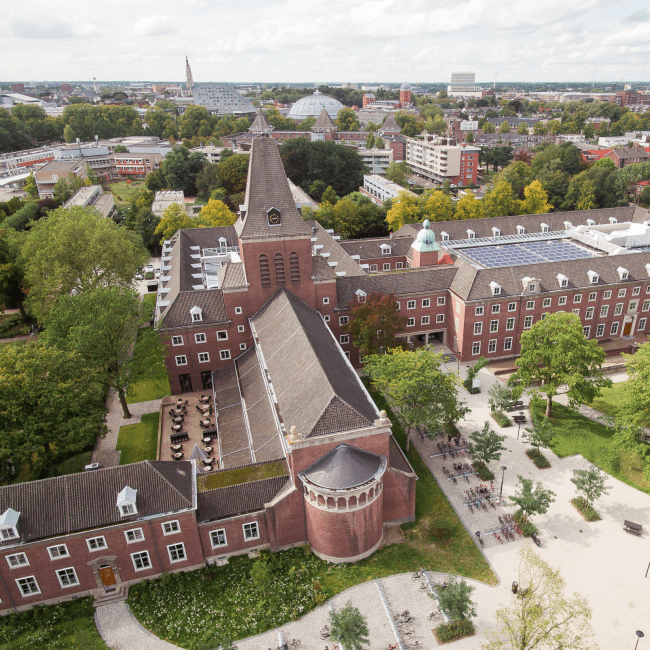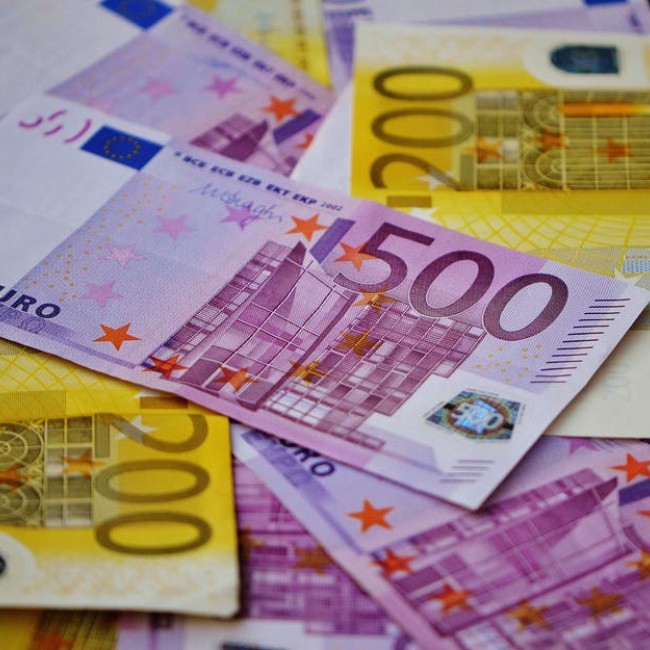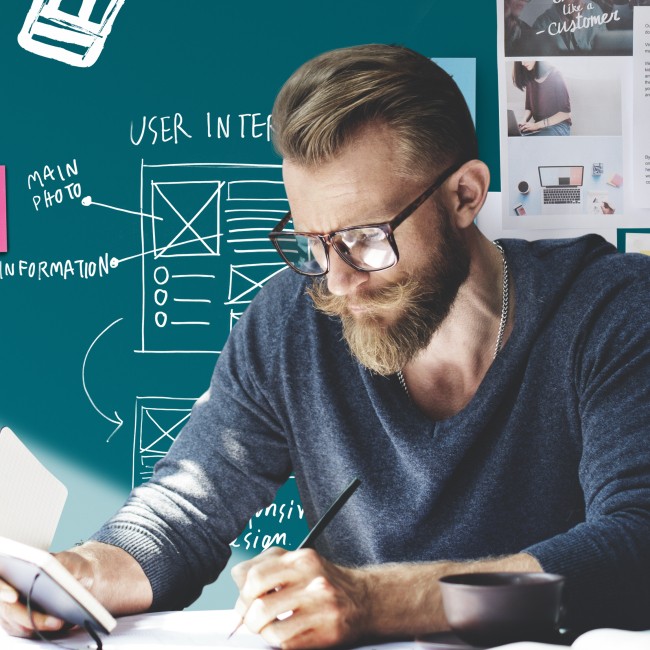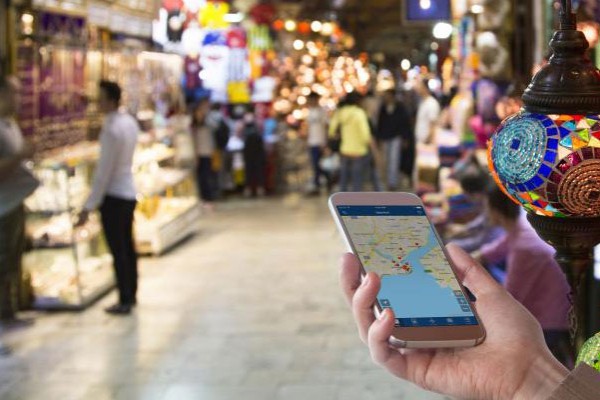Why BUas?
- Learn what the trends and opportunities of digitisation are in your field
- Experience what using different digital tools can do for your business
- Upon completion of this course, you will receive an Edubadge, a recognised digital certificate
Study overview
Curriculum
The course zooms in on recent technologies, such as Artificial Intelligence (AI) and virtual reality, physiological measurement of experiences, chatbots, gamification, and podcasting. It may be a little exciting, but as you delve into the capabilities of these digital tools, you will find out how they can impact your work and how they can help you gain a head start.
You will not become an expert in digital technology, but you will learn about its opportunities and possibilities in your field. The knowledge gained will help you use marketing more successfully and make informed and sustainable decisions.
You will experience which digital and technological trends and developments are current and important in the context of the tourism industry. You will learn what you can do with them and how to convince others of them. You will discover how best to give a pitch on these topics and how to create infographics to support your story. You will of course work with state-of-the-art digital tools and get to work on concrete assignments. Here are a few examples.
- Chatbot During this workshop you will learn about the role of chatbots in the customer journey, specifically as a tool for round-the-clock customer service, increasing the possibilities for interaction as well as gaining a deeper understanding of customers. Based on this knowledge you will create a Chatbot and respective Conversation Design Workflow for your chosen website/commissioner and give a presentation about it.
- Games In the workshop Triadic Game Design (TDG) you will design a game, together with your team. First off, a Game expert will introduce you to the world of Games. The assignment will be finished by presentations in class.
- Podcast We kick off the topic with an interactive lecture by an expert. In a team of two, you will develop the concept and script for a podcast about technology in tourism. After a feedback session you will record the podcast.
To critically analyse the value and practicality of recent developments in the sector, you will also work on a research proposal or a specific case, preferably in the context of your own company or work.
Study load & coaching
The course will be held from September 2023 to January 2024. It involves a total of 11 weeks, during which you will come to campus on Wednesdays. The course represents 6 ECTS credits.
Since 1 ECTS credit corresponds to 28 hours of study, this means that the programme has a study load of about 8 hours per week (between September 2023 and January 2024).
Before the start of the course, we will invite you to a meeting where we will look at your individual learning path together. You will work on cases in this course, together with fellow students and fourth-year students of Breda University of Applied Sciences. You will receive regular feedback from a coach as well as from your fellow students. At the end of the course, we will complete the module together in an informal setting.
Study method
The course consists of lectures, guest lectures, workshops, and coaching sessions. You will be taught by, among others, Jessika Weber, professor of Digital Transformation in Cultural Tourism, and Ondrej Mitas, senior lecturer and experience researcher.
Course set-up (provisional):
The course consists of lectures, guest lectures, workshops and coaching sessions with different themes every two weeks. You will be taught by, among others, Jessika Weber, professor of Digital Transformation in Cultural Tourism, and Ondrej Mitas, senior lecturer and experience researcher.
- Week 37: Kick-off and introduction
- Weeks 38 and 39: Podcasting: after an inspiring guest lecture by a well-known podcaster, you will create a podcast on a current topic within Tourism; from script to recording in the BUas radio studio, editing and podcast promotion.
- Weeks 43 and 44: AI vlogger: become a 'virtual vlogger'. You will develop a vlog about a destination unknown to you using AI generative tools. Discover what is real and what is not within marketing.
- Weeks 45 and 46: Measuring Experiences: Dr. Ondrej Mitas takes you into the world of 'experiences'. How do people experience holidays; how does it contribute to their happiness? You will discover how to research those experiences, be introduced to technological tools and create an experiment.
- Weeks 49 and 50: Game design: experience the fascinating opportunities of gamification. After an inspiring Triadic Game Design workshop by professor Jessika Weber-Sabil you will develop, for example, an educational or promotional tourism game.
- Weeks 2 and 3: Chatbot: Discover how a chatbot works and design a chatbot flow yourself. An experienced chatbot developer will teach you the ins & outs so that you experience the possibilities of a chatbot, also for your organisation.
Practical information

Date
An 11-week course, date to be announced. During the course weeks, you will come to campus one part-day a week (on Wednesdays). You can also choose to take part of the course online.

Location
Our beautiful green campus is situated at Mgr. Hopmansstraat in Breda.

Costs
The costs for this microcredential are 980 euro.
Edubadge
By the end of the course, students must successfully complete four group assignments and one individual assignment. For the group assignments you are expected to work in a group of 3 to 4 students. The group assignments are linked to the topics Podcasting, Gamification, Immersive Technologies and Chatbots. The individual assignment is to write a research proposal related to creating and conducting an experiment.
If you finish this course successfully, you will receive an Edubadge, a recognised digital certificate. This microcredential will be provided at NLQF level 6.

More courses for professionals
Did you know that we offer more courses for professionals? On this page you will find an overview of all courses and you can read more detailed information about these microcredentials.
